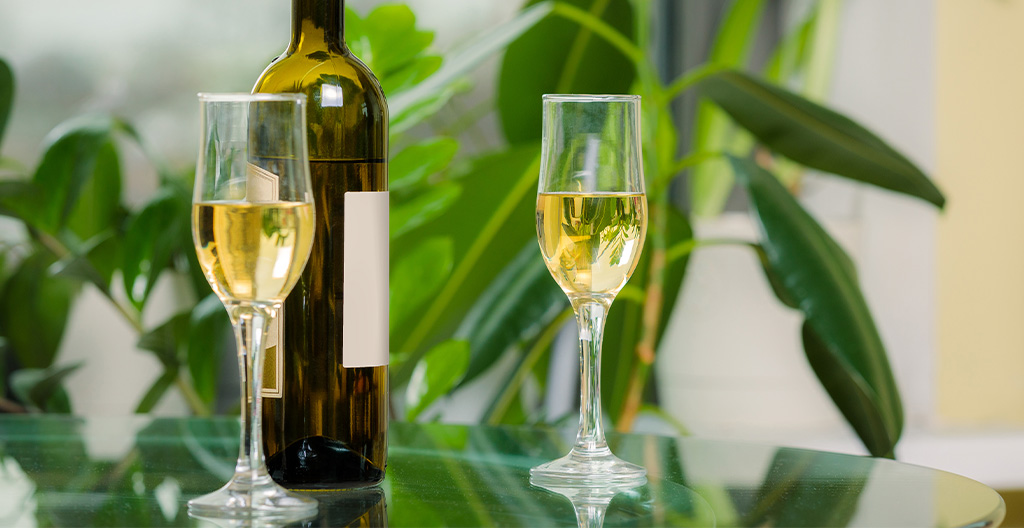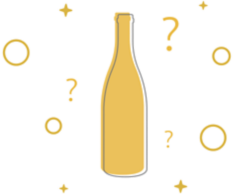Natural wine or low-intervention wine has exploded over the last few years and has proven it is here to stay. From Mexico and Austria, to New Zealand and Puerto Rico, natural wine permeates through all pores of the wine industry. Now, Germany is the latest country to experience a significant emergence of producers following the movement.
What Is Natural Wine?
There is no official definition of natural wine. Generally, however, it’s accepted that the term “natural wine” describes wines made with organic (or biodynamic) grapes that are spontaneously fermented. The result is then bottled without any additives, except for limited amounts of sulfur dioxide up to 50 milligrams per liter (although many don’t use it at all). For more information, check out our beginner’s guide to natural wine.
The Transition to Natural Wine in Germany
Like most countries, Germany does not have a legal definition for natural wine. Typically, the wines are labeled under the Landwein or Deutscher Wein (the German equivalent of table wine) designations, as they don’t meet the rules of the stricter Qualitätswein category.
“I’ve never used sulfur, but I could accept [limited use] for the definition,” says one vintner from the eponymous Terrassen Middle Mosel region, who crafts some of the finest Rieslings in low-intervention style today.
He continues, “For me, it is really important that if you say you’re making natural wine, the grapes come from organic vineyards.” This is especially true in the Mosel, since most sites are divided between numerous growers and many work conventionally.
Additionally, in the very steep, terraced vineyards of the Mosel, all spraying is done by a regional helicopter service that doesn’t use organic sprays. This is due to the sheer difficulty of spraying by hand in the oldest vineyards with limited manpower.
One vintner in the region shares that “our hope would be to have a fully organic Terrassen Mosel, and we have a tremendous amount of support from our fellow Winningen winemakers, but our peers are taking a wiser, more prudent ‘wait and see’ approach, rather than diving right in and potentially risking it all.”

The Impact of Natural German Wine
Natural winemakers have an important role in preserving the old vineyards, especially in Mosel. “They work in vineyards that are really hard to farm but have incredibly important historical genetics [of old, ungrafted, pre-phylloxera vines],” explains Stephen Bitterolf, founder of a New York-based wine importing company, which specializes in German wine.
“They are literally saving the history of the region and defining a new Mosel, [but it’s important to mention that] a lot of classic estates are doing this too,” notes Bitterolf.
In that sense, by avoiding harmful chemicals and preserving old vines, natural winemakers are important from an ecological standpoint. One winery in Northern Pfalz run by brothers who converted their farming to organic back in 2014. Today, their vineyards resemble some of the prettiest gardens that have inspired many young winegrowers in the area.
Natural wines are also adding diversity to the overall picture of German wine. Natural winemakers work with historical, but less popular varieties, like Elbling, Dornfelder and Frühburgunder. In some cases, they work with old vines of these varieties, and their Elbling bottlings make you reconsider everything you know about this humble grape.
Additionally, natural winemakers are redefining German Riesling as a whole. For the last 50 years, Germans championed off-dry and sweet-style Riesling, such as Kabinett, Spätlese and Auslese. The vinification process for sweeter wines involves stopping fermentation by adding copious amounts of sulfur dioxide—the opposite of natural wine.
Consequently, natural winemakers only make dry wines. However, they are not pioneers of the dry style. The most prominent pioneers are Verband Deutscher Prädikatsweingüter (VDP) members, an association of more than 200 German wine estates that promotes binding quality standards and ecological management of its members. Some members of VDP create Germany’s most renowned dry wines such as Grosses Gewächs (GG) that come from Grosse Lage (or grand cru) vineyards.
But most GG producers still use a process where they add sulfur dioxide before malolactic fermentation (malo) is complete. This blocks the process of malo, producing wine that maintains the aromas and flavors associated with German Riesling. In comparison, natural wine goes through malo, as it must occur to mature and bottle a stable wine without adding sulfur dioxide.
A New Wave of Natural Winemakers
Since 2014, one winery has produced wines, bottled unfined, unfiltered and without any additives. He says, “It is exciting to make wines solely from grapes.”
This is a rare example of a winemaker running a winery that has centuries of history behind him, but is still courageous enough to try new things. For many others, it is not easy to experiment with the unknown, especially if there is a chance of ruining centuries’ worth of reputation. Hence, most natural winemakers in Germany are either winemakers who didn’t previously enjoy huge fame internationally, foreigners or Germans who come from outside wine country.
One of the other locals and natural wine pioneers is a man who converted his entire estate in Mosel to biodynamic farming back in 1978. For years he made classical wines with biodynamic grapes, and few heard of him until 2010. Then, sommeliers from the renowned Copenhagen restaurant Noma encouraged him to make natural wines, and word started to spread.
One of his contemporaries, also from Mosel, was also encouraged by Noma sommeliers. Ohne (meaning “without” in German), his cuvée, is one of the first German Rieslings bottled without the addition of sulfur dioxide.
Outside of Mosel, most winemakers focus on varieties other than Riesling. In Baden, look for wines with a special focus on Pinot Noirs, which show taunting complexity.
While natural wine continues to spread through Germany’s wine scene, it’s definitely a region to keep an eye on for environmentally-conscience and interesting pours. If you’re curious about Germany’s burgeoning natural wine scene, these additional producers are ones to watch.

